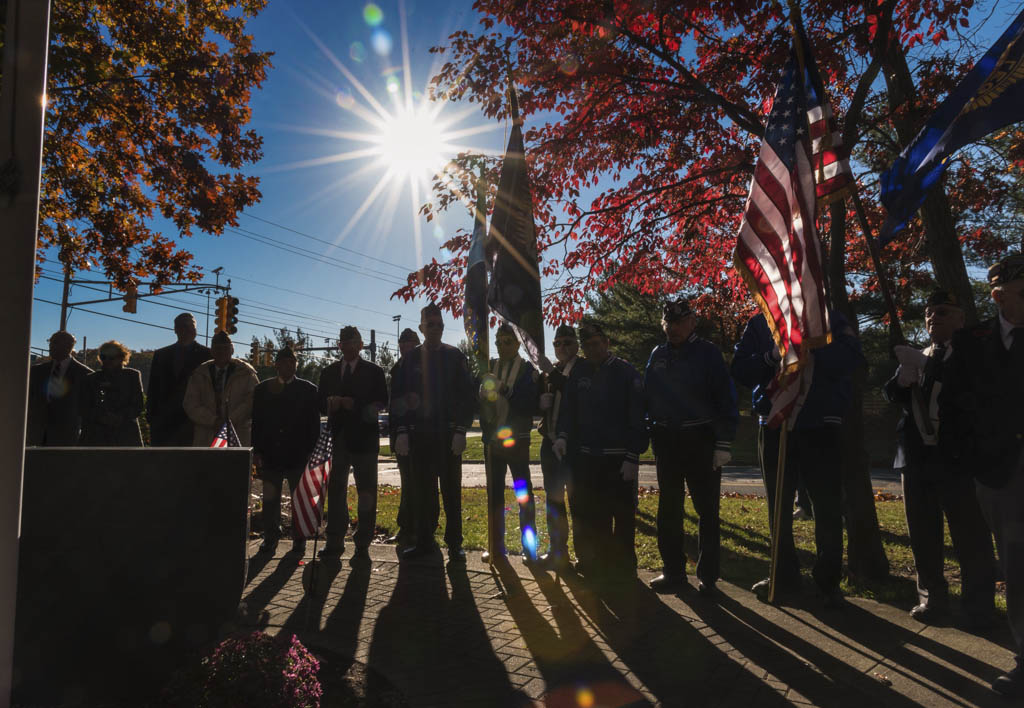Over the years, I have heard many cutting remarks about veterans but the one that distressed me the most has to do with who qualifies as a veteran. It appears that for some people those of us who participated in combat or at least served in combat areas are true veterans and those of us who served in non-combat areas or in the Reserves or in the National Guard ought to not be viewed as legitimate veterans. I have heard this viewpoint from many people in the military who had served in combat, from people who had not served in the military at all, and from people who had served in non-combat areas or in the Reserves and National Guard. These people have pointed out to me that those who had put their life on the line in combat, who were wounded or seriously injured as a result of being in combat, or who had perished in the line of duty had experiences that were different from those who hadn’t faced trial by fire. That distinction is generally accurate and valid. All of us, both in the military and in civilian life, should acknowledge that distinction. We view those who had been in combat as our heroes and we are mindful of their unique sacrifices so that all of us can live in safety. Also, all of us should spare no effort to support and assist their reentry into mainstream society so that they too can pursue the American dream.
But how does valuing the service undertaken by those who have been in combat disqualify the contributions of those who had not been in combat? Our nation was founded on the noble principles that people matter. And these principles, which have been the benchmark of our democracy, have from the outset, been fulfilled, supported, and protected by our citizen army. Our citizen army, also known as the militia, consisted of farmers, ranchers, attorneys, merchants and people in other vocations. These people served part time in their militias and worked in their vocations the rest of the time. Even today this country depends heavily on its citizen army.
If the only criteria for designating someone a veteran is that he or she served in combat than most of us who served would not meet that criteria. Let us remember that everyone who was drafted or enlisted agreed to defend our country, our community, and our way of life. In the military, our first and primary military occupational specialty, was and remains that of combatant. That’s what all of us learned in basic training or boot camp. Upon completion of that training we moved on to more advanced combat training or other specialties that the military deemed essential for our nation’s missions.
To make this point clearer, I will use the analogy of the human body. Some of us became the fists, others the heart or the lungs, others the brain, the eyes or other parts of the body. Each part of the body is essential. And, for the body to function well, each part of the body must be integrated with the other parts. This analogy also holds true for the military. All of us served. Some fought directly with our adversaries, but most of us provided services critical to the needs and overall effectiveness of our military missions. We also stood by ready willing and able to take our place as combatants when duty called.
For people to denigrate and disqualify the service that we, who had not been in combat, provided and continue to provide, even today, strikes a knife in our hearts. I have encountered too many veterans who feel less of themselves and who wish to be invisible because they didn’t meet this narrow criterion of who is a legitimate veteran. At the end of the Vietnam War, those of us who served in Vietnam as well as those of us who served in non-combat areas such as in the Mediterranean, in Europe or in the continental United States were made to feel ashamed just for having served. Back then we chose to deal with the derision by becoming invisible.
Why, I ask, are we so quick to devalue others or ourselves? Why are we so ready, today, to pit ourselves against one another; to divide one another into groups of them vs. us? Are our differences over this question of who qualifies as a veteran an isolated issue or is it symptomatic of a more pervasive phenomenon within our society? Could this be yet another example of how we accentuate and latch onto the differences between us and then use those differences to justify being disrespectful towards one another? Is it not enough that we have enemies outside our borders? Do we have to make enemies of one another inside our borders too? We’ve seen this scenario played out in our country many times before during our brief history. And it always ended badly. Remember the phrase “United we stand, divided we fall.”
Please, let us reclaim the high road and noble principles upon which our country was founded which we veterans pledged to defend and protect and for which many generations of our men and women served, fought, and died. Let veterans who served in the past and those currently serving in our armed forces, in whatever capacity, know that we support them and appreciate their putting their lives on the line each and every day so that we can live in this land we call home. Let them not think that they don’t matter or that their efforts were or are in vain.
Jack Kirschenbaum
Commander, American Legion Post 522
Monroe Township

